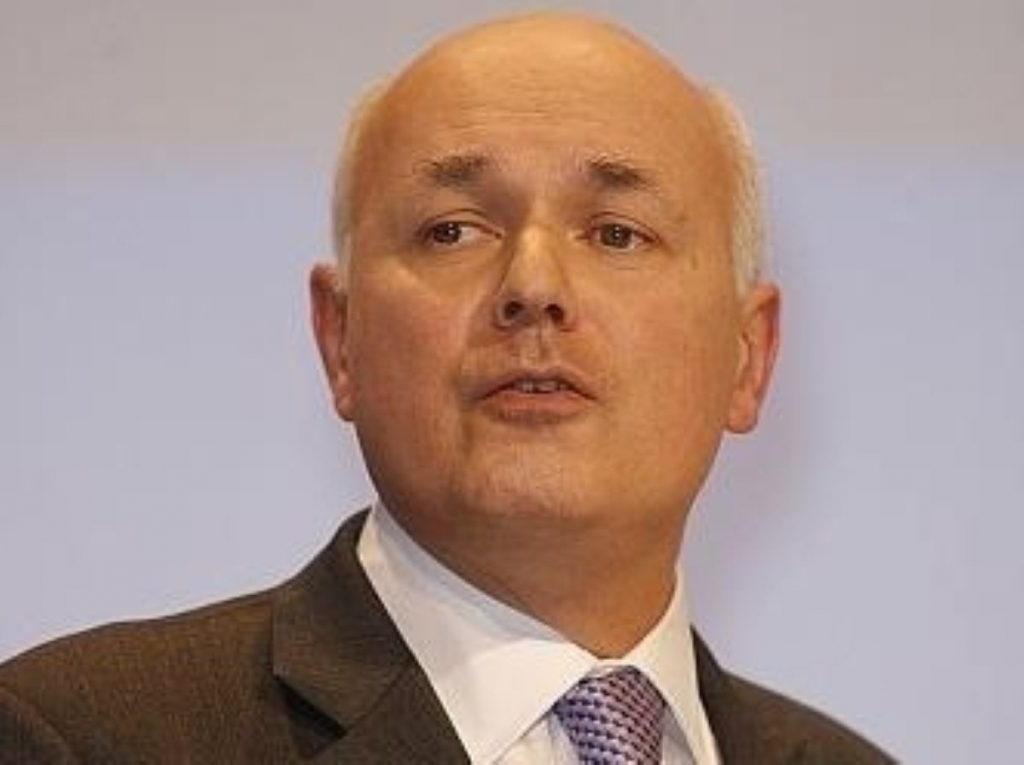Think tank: ‘Scrap minimum wage to fix welfare’
The minimum wage should be abolished or drastically reduced if Iain Duncan Smith is to finish his welfare reform agenda, a think tank has argued.
The report by the Institute of Economic Affairs (IEA), a right-wing thinktank, agrees with the principles behind the work and pensions secretary’s plans, but insists the reforms do not go far enough.
“Iain Duncan Smith has rightly analysed the welfare problem, but is only part of the way to a welfare solution,” said Mark Littlewood, IEA’s director general.


“Of course, we need to ensure that it pays to work. It’s insane that it can be more profitable to be on welfare than in employment.”
Other proposals in the report include introducing ‘workfare’ schemes based on a US model which makes it compulsory for benefit recipients to continue to work at local councils’ expense – the aim being that “the daily life of benefit recipients should not be that different from the daily life of their working peers”.
The report added: “It would also provide a strong financial incentive for local authorities to get people back into work as soon as possible.”
Mr Littlewood added: “It’s not enough to ensure that work pays, we also need to be conscious of the greater benefit of leisure time that is gained by those who don’t work.
The IEA claimed such schemes would have to be piloted by local authorities and that if determined by Whitehall the proposed system would be “a mess”.
Mr Duncan Smith plans to replace the existing complex benefit system with one ‘universal credit’ part of which can be retained once the claimant goes into work.
The thinktank said this was insufficient to make work attractive and suggested a ‘negative income tax’ determining allowances by type of household.
Mr Littlewood said of the universal credit: “Even under these new proposals, some people entering the workforce will face effective tax rates of 65%. Is keeping just 35p in every pond of wages really enough of an incentive?”
The government has hailed Mr Duncan Smith’s plans as the most significant reforms since the welfare state was introduced.
The furore that resulted from the government’s announcement of ending the universality of child benefit is likely to make the coalition more than a little wary of the more radical suggestions mooted by the thinktank, however.












